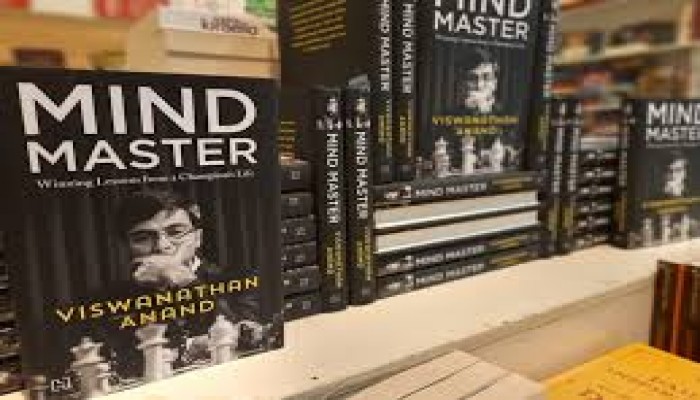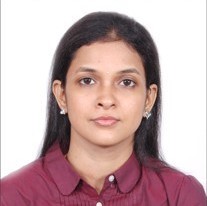Book Review of Mind Master : Winning Lesson's from a Champion's Life
- In Book Reviews
- 10:44 AM, Sep 10, 2020
- Geetha Ranganathan
This book is for anyone who likes to know how to sail through the roller coaster ride of life. Viswanathan Anand, chess champion and Susan Ninan, a sportswriter has done a fabulous job in narrating winning lessons of Viswanathan Anand, popularly called as Vishy.
This book starts with a mention to Vishy’s 1st Championship triumph at Tehran (2000). They highlighted the painful moment where the chess community denied his status as a Champion. Vishy stood cautious in not getting into the politics between Kramnik and Topalov. It is because he prefers playing safe. During 2007, Vishy signed an unfair deal against Kramnik to prove his credibility as a Champion. He tackled the unfamiliar moves of Kramnik with a calm mind. He earned the World Championship title (Mexico) with his emotional stability and learnt wisdom points to take things sportively.
Moving back to his childhood days, the authors mentioned about the training moments of Vishy at Tal Club. From early ages, Vishy reads chess books to learn varied moves. To quote, Chess Openings-Theory & Practice and Chess Fundamentals are the few. Post his migration to the Philippines (1978), he took part in tournaments and solved chess puzzles. Vishy was fortunate to spend moments with Vladimir Bagirov, then Grandmaster. Inspired by Bagirov and because of focused practice, Vishy became the National Sub-Junior Chess Champion (1983). Further, he defeated Aaron at the National level and elevated as an International Chess Master. Vishy follows certain practices meticulously. At the end of each match, he pens down his mistakes and opponents' strategies. Learning through the mistakes and competitor moves, he became the Grandmaster (1988).
The authors pulled out the psychologist's research on contextual memory of chess players’ and the general perception about the eidetic memory. They stressed how the revision of notes helped Vishy in most of the matches.
Being a down-to-earth person, he stood humbly during moments of victory. He loves to identify his flaws and change it accordingly. When he loses the World Championship title (2001), he picked up his dark spots. He worked on the gray areas which lead him to win the Dubai Rapid Grand Prix match. Vishy asserted the importance of emotional recovery regarding his defeat with Wang Hao (2013). To quote about his emotional strength, he illustrates his calm posture when Karpov arrived late to panic him (Dortmund Tournament). He is of the view that it is better to accept the situation than confront. He continued playing chess despite his personal setbacks. His fire inside never died, and he played the Norway Tournament (2015) with a full heart after losing his mother.
Learning the strategies from Mikhail Gurevich, Ferdinand Hellers, he made spectacular moves against Kasparov. Further, he used the out of box thinking of Ubilava and he combined the versatile and vertical player's strategies. Also, he learned to change his approach based on the opponent's moves. Stressing the importance of rehearsing unfavorable positions, he mentions such practise is the reason for Carlsen's victory during 2013 Championship game. He views that everyone requires a dedicated focus on an idea to achieve perfection and success.
The unreasonable conditions imposed at the PCA Championship match made him clear that they considered him as an alien. Vishy highlighted how Kasparov behaved weirdly to distract him and finally won that match. Aruna (his wife) played a significant role in managing partiality games and for his preparations. Again, he signed an unfair agreement for the FIDE Champions (1998) and lost the match to Karpov at close points. At the end of the match, he noted how the opponents' success can pose a threat; and added ways to turn it positive.
Like Soviet players, Vishy does not belong to a methodical chess school. Understanding the difference, Vishy worked on smart moves and defeated the Soviet team at the Interpolis International Tournament. Further making it to the quarterfinals of FIDE. He believed that talent with hard work brings success and creates fear in the opponents’ minds. He highlights his experience of learning the Russian language, which further leads him to become the youngest Grandmaster. Amidst failures like Candidates Tournament (1995), he grew with greater zeal and confidence.
His deep knowledge on chess helped him to find out bugs from the chess software developed by a fan. He was ahead in using technology. It is evident when he used Fritz, a chess engine, to point a missing manoeuvre. Moreover, they highlight how pre-computer era players failed to cope up with technological improvements. His expertise in computer-based chess made him win the match against Karpov in 1999. Furtherance to his preparations, he switched the chess engines and got ideas for his 2007 match. He explained how Artificial intelligence (AI) has defeated the chess engines and added that his learning curve moved up with AI. He raised questions like, what new things to be learned? What old things to be withered? These questions are equally important to every individual since all of us must live with AI.
He emphasized the criticality of staying alert till the victory is proclaimed and being mindful to the present happenings. To quote an example, he pulled out his experience with Kramnik. With the oncoming of Rustam (trainer) with Nielsen, Vishy's knowledge on modern methods in chess improved. He became cold when he saw his ex- teammate at Kramnik's side during 2008 match. Sailing through the mind games of Kramnik, Vishy made an opening move belonging to the opponent. When Kramnik repeated the same move in the next match, it turned to be an advantage for Vishy. Though Vishy leads Kramnik, he played humbly, ending the match to draw.
By 2010, Vishy made a road trip to Sofia for his World Championship match after air traffic was disrupted by a volcanic eruption. Aruna postponed the match start by enforcing 'force majeure' clause and filtered the news before it reaches Vishy and team. His incredible experiences during his Sofia travel include the seizure of passports and watching Lord of the Rings. During the match, he observed that Topalov has purchased the IBM's supercomputer for which Vishy was denied access and it shook him. Despite the adversities, Vishy defeated Topalov, and he credited the success to the support extended by Carlsen and Kramnik. This stood as an example of his friendly relations with other players. Further, this victory proclaims his attitude of transforming every adversity into an advantage with calmness.
Significant events happened in Vishy’s life (2011) including the birth of his son, his defeat against Carlsen, and his loss in the London Classic match. He mentions how he became emotionally unstable due to the failures. Hence, he played World Championship against Gelfand with less novelty. Shattered by the loss of the 7th game, he felt that his growth has fallen apart compared to the young players. Quoting the psychologist's research on learned helplessness, Vishy expressed his negative feelings.
Further, the team's disintegration, losing the game against Wang Hao and falling 70 points below Carlsen, devastated his confidence. Here, Vishy emphasized on emotional visualization of the bigger picture to de-stress. Knowing that his practice skills had gone down, Vishy fought hard, leaving Carlsen to win (2013). Disappointed by the defeat at his hometown, he highlighted those alternative solutions brought out by the young players. They underscored the need for technical visualization in chess, thereby opening extra details and becoming a powerful player.
Post his defeat with Carlsen, Vishy avoided chess commentaries. Moved by Kramnik's advice, Vishy refreshed himself and took part in the World Championship against Carlsen (2014). He thrashed the comments on his age by becoming a World Rapid Champion (2017). He never allowed success to lower his guard and ensured not to grumble around failures. With extreme wins and losses, Vishy mastered the art of being neutral at any point. He always played passionately and prefers not to fall for ranks. On a concluding note, he encouraged young people to come up with zeal to learn and achieve their dreams.
Image Credits: Facebook







Comments